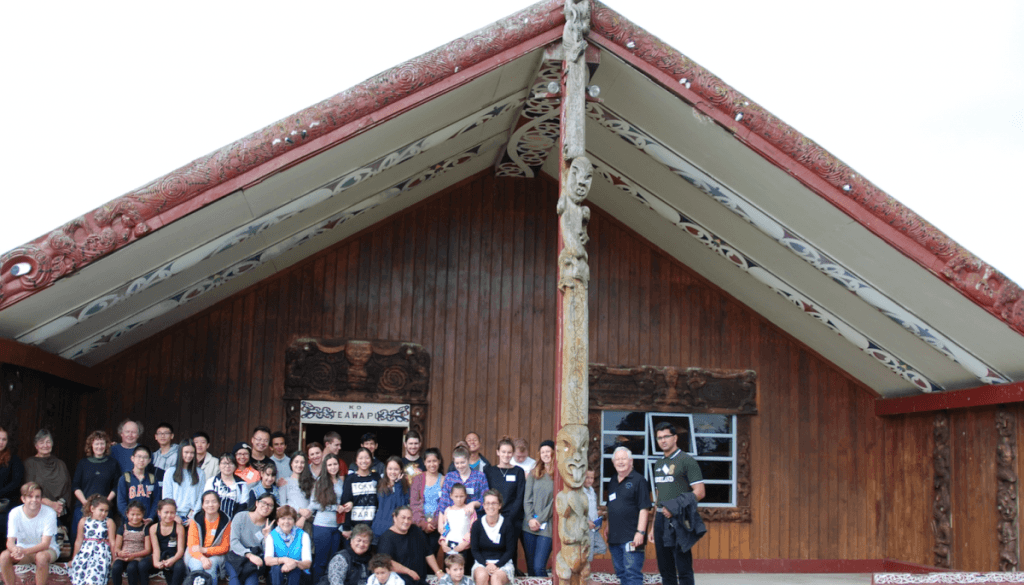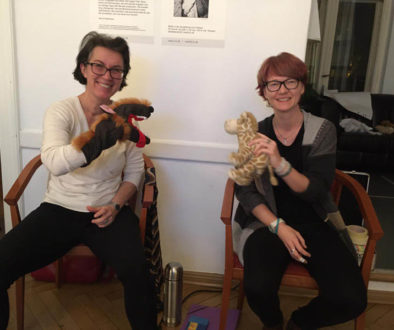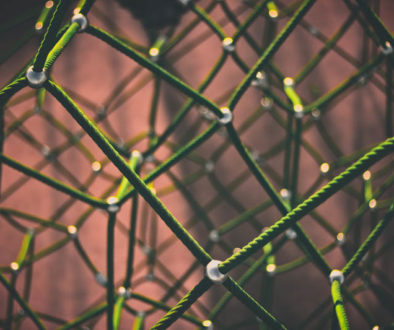Intercultural Leadership Training in Paeroa New Zealand

Dr. Anna Storck was co-organiser of this event and workshop provider for the young people. One of the answers to the question: why the leader of the future needs intercultural competence goes binned creating better relationships across cultures. We need the perspective of different cultures in order to live the story of humanity of the future, we are oneness, and as we speak different languages we see the world from the different point of view,collective intelligence, for all solutions we need. As much as anything, the world today needs mature mentors and initiators to support young people to grow into visionary artisans of cultural change, the new leaders who will guide humanity through the transformation that the greater Earth community wholly depends upon. Project funded by Ministry of Social Development
Here is my mihimihi – an introduction speech, which I have prepared for my workshop about intercultural competence at the marae in Paeroa, NZ.
For better understanding the Maori context you should know that the mihi whakatau (Māori formal greetings) is the Māori term used to describe a formal speech of welcome and is undertaken by a Māori representative. Mihi whakatau is traditionally used for welcoming, introductions, openings and general purpose which take place off the marae. The marae (meeting grounds) is the focal point of Māori communities throughout New Zealand, some kind of a fenced-in complex of carved buildings and grounds that belongs to a particular iwi (tribe), hapū (sub tribe) or whānau (family). Māori people see their marae as tūrangawaewae – their place to stand and belong. Marae are used for meetings, celebrations, funerals, educational workshops and other important tribal events.
At the beginning of any hui, following the pōwhiri (formal welcome) or the mihi whakatau, a round of introductions and speeches – or mihimihi – usually occurs. During this time, people ordinarily stand to share a little bit about where they come from and who they are in relation to this (i.e. share their pepeha, or tribal aphorism); many share significant parts of their whakapapa (genealogy).
While whakapapa is about the recitation of genealogy – lineage or ancestry – it also literally means to ‘place in layers’ or ‘create a base’. It places our people in a wider context, linking us to a common ancestor, our ancestral land, our waterways and our tribal (and sub-tribal) groupings. Hence, the literal translation fits with the broader meaning of ancestry and the expansive nature of its ‘layers’.
The whakapapa is about relationships, with both the land and with people. The name tangata whenua or ‘people (tangata) of the land (whenua), makes reference to this relationship, as does the term mana whenua, the mana (prestige) held by the people of that place. The importance of the foundational relationship with the whenua and its enduring ability to sustain us is described aptly in the following whakatauki (proverb):
Whatu ngarongaro te tangata, toitū te whenua.
People will perish, but the land is permanent.
Tēnā koutou, tēnā koutou, tēnā koutou katoa (hallo everybody here)
Nag mini uni ki a koutou katoa (warm greeting to everyone)
Ki te atua -tēnā koe (to God – greetings)
Ki a papatoonuku tēnā koe (to mother earth – greetings)
Ki the whare tēnā koe (to the house – greetings)
Ki the hunga mate (farewell the dead)
Ki the hunga ora (welcome the living)
No Poland ahau (I am from Poland)
Ko Ślęża the maunga (my mountain is Ślęża)
Ko Bystrzyca te awa (my river is Bystrzyca)
Ko papa te Wiktor (my father is Wiktor)
Ko mama te Anna (my mother is Anna)
Ko Anna Storck toku ingoa (my name is Anna Storck)
No reira (I finish)
Tēnā koutou, tēnā koutou, tēnā koutou katoa (greetings to all)
Our Intercultural Leadership Training took place there and it was not the first time for me when I had to provide the workshop barefoot (I have done it for example providing the workshop inside the mosque – the Islamic house of prayer), but it was the very first time, when I mentioned my parents and the place where I come from instead of introducing myself in terms of positions and degrees. It gave me a feeling of a great connection with myself and helped to speak from the level which is focused on the whole, connected both to my past and to the emerging future that links to my emerging self, to who I really am. What a beautiful cross cultural experience!
Dr. Anna Storck



